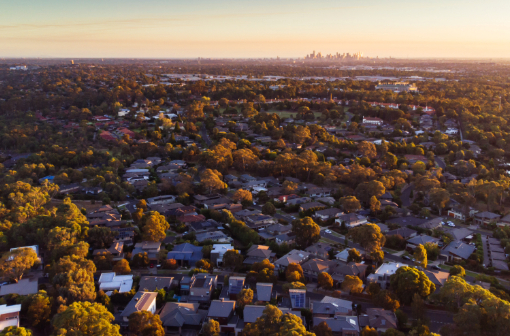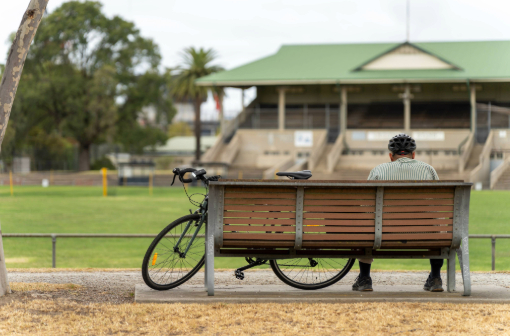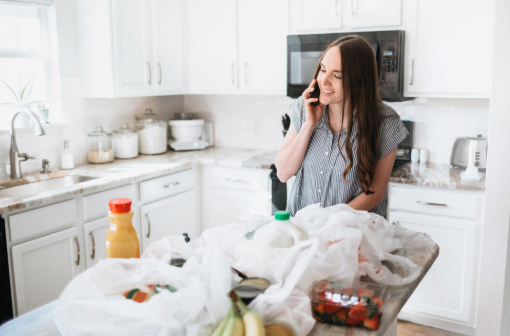“I vigilantly monitor my own mental wellbeing and, to maintain balance, I give myself permission to slow down or say ‘no’ when I am feeling overwhelmed.” – Dr Nancy Huang.
Real Wellbeing encompasses so much more than you think. Here, Australian Unity’s Chief Medical Adviser Nancy Huang draws on her 35 years of experience in the medical field to reveal the most important ways to look after your wellbeing and how she applies them to her own life.
There’s a misconception that wellbeing is simply about the absence of disease or negative emotions. Of course, good mental and physical health is critical to wellbeing, but it doesn’t tell the entire story.
Real Wellbeing relies on a broad range of factors that affect our lives. It’s also the way we see the world. To me, it’s a puzzle made up of three key components.
Firstly, it’s my ability to feel well, physically and mentally. Secondly, it’s knowing that I can function at my fullest ability. Lastly, it’s about having a sense of joyful belonging or connectedness to my family, friends and community. For me, real wellbeing is how each of these puzzle pieces fit together at any given time.

1. Feeling well
This is the puzzle piece most people focus on when they think about wellbeing: feeling physically and mentally well. There are a range of factors that contribute to my own physical wellbeing. I manage any chronic conditions, take my medicines as prescribed, reduce my risks for other disease, only drink in moderation, don’t smoke and, as I’m in my late 50s, it’s particularly important that I remain active.
My main love is bushwalking. Being among the trees and under a big sky really revives me, so I find time in my schedule to do this regularly, and at least once a month I do a longer four- to five-hour walk. I also eat healthily by consuming plenty of grains, fruit and vegetables.
The way I look after my mental health involves managing negative emotions and developing the skills and capacity to be generally satisfied with how I'm traveling in life. Over the years I’ve noticed that the more I’m juggling in life, the less time I have to relax, and the less likely I am to feel mentally well. This is why I vigilantly monitor my own mental wellbeing and, to maintain balance, I give myself permission to slow down or say “no” when I am feeling overwhelmed.
2. Functioning at my fullest ability
Doing a good job at work and feeling like I’m functioning at my best are important to me. Like many people working in aged and community care, I have a demanding and complex job as the Chief Medical Adviser for Independent and Assisted Living at Australian Unity. At times there are long hours, unexpected tasks, difficult conversations and competing priorities. Despite the challenges, I’m aware of the privilege that I have in doing a job that I enjoy and feeling like I'm contributing to something meaningful.
This sense of wellbeing isn’t limited to me. There’s been a wealth of research on wellbeing, and while some aspects may be unique to some individuals, we do know there are common principles that apply to all. One commonality is that everyone benefits from having meaning in their life. We know that without meaning there’s less motivation and purpose, and when this happens, the behaviours that promote positive relationships and physical or mental health will decrease.
Outside of my job, I also look to my future, towards that time of life when my husband and I will not be in the paid workforce. Continuing to find meaning and value in the things that we do is important. That's why I’ve looked into volunteer roles and I’ve also taken up some new hobbies and done a few courses. One particular area I’ve gotten into is ceramic making. I have a pottery wheel at home and have started making pots. It's very calming and soothing. I'm terrible at it but I'm enjoying it!
3. Joyful belonging
The final piece of the wellbeing puzzle is the joy I get from connections with my family, friends and community. This is the ability to feel part of a tribe and to spend time with my loved ones, and in particular my little grandson, who is 18 months old. He’ll soon be joined by a baby brother.
There can be quite a lot of hard work involved in maintaining relationships. I try to keep it simple and consistent by making sure I carve out quality time with those who are important to me – whether it’s my mother, sisters, daughter, grandson, husband, friends or colleagues – and by being present while we’re spending time together. We connect regularly in a meaningful way.
This again is a privilege that I don't take for granted. I appreciate that I have a wonderful social network that I can wrap around me to give me energy. Without this, the other two pieces of the wellbeing puzzle would feel somewhat empty.
Disclaimer: Information provided in this article is not medical advice and you should consult with your healthcare practitioner. Australian Unity accepts no responsibility for the accuracy of any of the opinions, advice, representations or information contained in this publication. Readers should rely on their own advice and enquiries in making decisions affecting their own health, wellbeing or interest.


